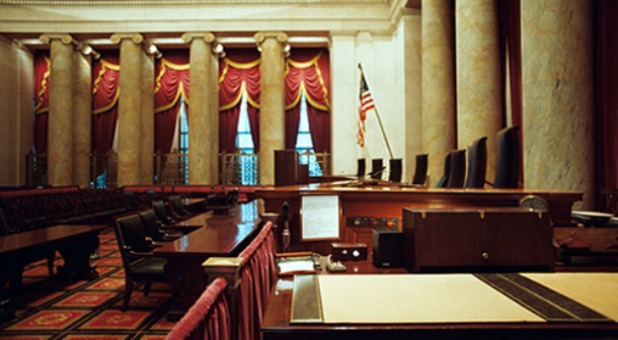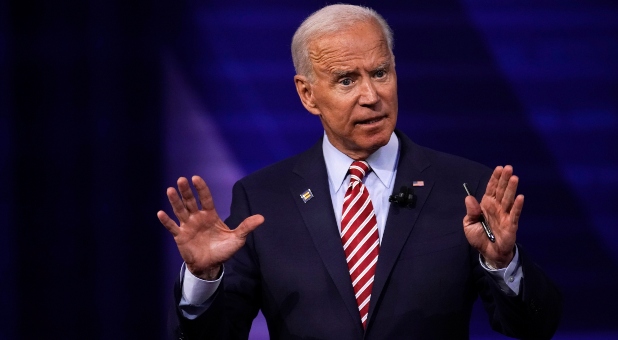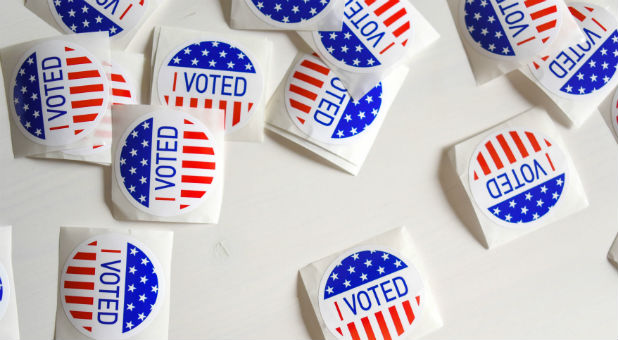The states have declared legal war over the Nov. 3 presidential election results. And the next and greatest battle will occur before the U.S. Supreme Court.
Tuesday, Texas Attorney General Ken Paxton filed a lawsuit against Pennsylvania, Georgia, Michigan and Wisconsin to block the states from finalizing electoral votes for Democrat Joe Biden.
“The four states exploited the COVID-19 pandemic to justify ignoring federal and state election laws and unlawfully enacting last-minute changes, thus skewing the results of the 2020 general election,” the attorney general’s office said. “The battleground states flooded their people with unlawful ballot applications and ballots while ignoring statutory requirements as to how they were received, evaluated and counted.”
The suit was filed directly in the Supreme Court. Paxton is asking the Supreme Court to order the four states to allow the state legislatures to appoint their electors.
“Fair and transparent elections are the foundation of a free society,” said Liberty Counsel founder and Chairman Mat Staver. “There are so many irregularities in several states that cast serious doubt on the process. We must ensure that this election follows the law and protects the fundamental right of the people to elect their leaders. This rule of law must be followed. Every legitimate vote must be counted, and every illegitimate vote must be disregarded.”
Paxton asserts how the trust of the citizens and the integrity of the 2020 election were compromised by “voting irregularities” and violations of the statutes by the four states. He believes that the states flooded the citizens with unlawful ballot applications and ballots while ignoring statutory requirements, involving how they were received, evaluated and counted.
In the lawsuit, Paxton said there were differences in voting rules and procedures in different counties within the states, violating the Constitution’s Equal Protection Clause.
The suit, which states the election “suffered from significant and unconstitutional irregularities,” also claims there were “intrastate differences” in how certain voters were treated and that there was an unconstitutional “relaxation” of ballot-integrity laws.
“Whether well intentioned or not, these unconstitutional acts had the same uniform effect—they made the 2020 election less secure in the defendant states,” the suit states. “Those changes are inconsistent with relevant state laws and were made by non-legislative entities, without any consent by the state legislatures. The acts of these officials thus directly violated the Constitution.”
Paxton also argues that the Supreme Court is the only venue to resolve the multi-state dispute. “This action against multiple state defendants is the only adequate remedy for plaintiff states, and this court is the only court that can accommodate such a suit.”
According to Amy Howe, who writes for SCOTUSblog, the suit is a “last-ditch” effort to forestall the outcome of the 2020 presidential election. It accesses the high court’s original jurisdiction, which is most often used to resolve interstate issues such as water rights, to address the ongoing election disputes.
The timing of the lawsuit is crucial, as the “safe harbor” timeframe between the general election and when the states are required to determine and seal their electoral votes. Electors meeting nationwide on Monday, Dec. 14.
With the Supreme Court, there is normally no specific timetable for the court to act in such cases, but Paxton explained that the state is seeking expedited consideration of its request. He is urging the justices to resolve the dispute without additional briefing, telling them that the issues presented in the case —involving the outcome of the 2020 presidential election—”are neither fact-bound nor complex.”
According to iDaily.com, Alabama, Arkansas, Florida, Kentucky, Louisiana, Mississippi, South Carolina and South Dakota are joining Texas’s lawsuit challenging the election procedures. {eoa}
See an error in this article?
To contact us or to submit an article























